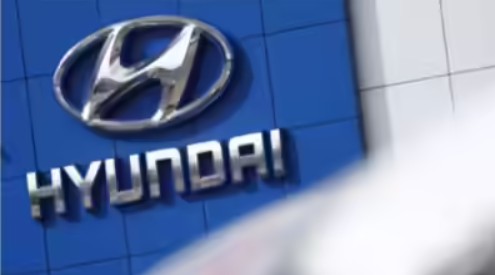Hyundai Motor India Defies Headwinds with Strong Profits and Rare-Earth Resilience

Hyundai Motor India has reported stronger-than-expected quarterly profits, a significant achievement driven largely by a robust surge in exports. This positive financial performance comes amidst a challenging global automotive landscape and growing concerns over critical supply chains. Adding to its resilience, the automaker has also played down fears surrounding China’s recent rare-earth magnet export ban, asserting that it possesses sufficient stock to navigate any short-term disruptions. This strategic positioning highlights Hyundai India’s adaptability in a dynamic market, even as the broader electric vehicle (EV) supply chain faces increasing pressure.
The company’s manufacturing chief has confirmed that their current inventory of essential components is adequate, providing a buffer against immediate impacts from the Chinese export restrictions. This proactive management of resources is particularly noteworthy as carmakers across India are increasingly leaning on exports to offset slower domestic sales and rising discount pressures. With India solidifying its position as the world’s third-largest auto market, Hyundai Motor India’s performance offers a compelling case study in navigating global economic complexities through strategic foresight and diversified market engagement.
Navigating the Rare-Earth Challenge: Hyundai’s Strategic Stockpile
The global automotive industry, particularly the burgeoning electric vehicle (EV) sector, is highly dependent on rare-earth magnets, which are crucial components in EV motors and other advanced technologies. China dominates the global supply chain for these critical materials, controlling over 90% of the world’s magnet processing capacity [3]. Recent export restrictions imposed by China on rare-earth magnets have sent ripples of concern through the industry, with many automakers fearing potential production disruptions.
However, Hyundai Motor India has demonstrated remarkable foresight in mitigating this risk. The company has explicitly stated that it remains unaffected by China’s rare-earth magnet export ban for now, attributing this resilience to a sufficient existing inventory. The manufacturing chief’s confirmation of adequate stock provides a crucial assurance in a volatile supply chain environment. This proactive approach likely involved strategic stockpiling of these essential components, anticipating potential geopolitical or trade-related disruptions.
The broader EV supply chain is indeed facing significant pressure, stemming from various factors including raw material availability, geopolitical tensions, and logistical challenges. The reliance on a single dominant supplier for critical materials like rare-earth magnets exposes the industry to considerable vulnerabilities. Hyundai’s ability to weather this particular storm, at least in the short term, highlights the importance of supply chain diversification and robust inventory management in today’s interconnected global economy.
While the long-term implications of China’s rare-earth policies on the global automotive industry are still unfolding, Hyundai Motor India’s current position offers a valuable lesson in strategic preparedness. It underscores the need for automakers to build resilient supply chains that can withstand external shocks and ensure uninterrupted production, especially as the transition to electric vehicles accelerates.
Conclusion: A Model of Resilience in a Dynamic Market
Hyundai Motor India’s recent performance serves as a compelling example of how strategic foresight and operational agility can lead to success even in a challenging global economic climate. By prioritizing exports and proactively managing its supply chain for critical components like rare-earth magnets, the company has not only achieved stronger-than-expected profits but also demonstrated a remarkable degree of resilience against external shocks.
As India continues to grow as a major player in the global automotive industry, and as the transition to electric vehicles gains momentum, the lessons from Hyundai’s experience become increasingly relevant. The ability to adapt to evolving market demands, diversify revenue streams, and secure essential resources will be paramount for sustained growth and profitability. Hyundai Motor India’s current trajectory positions it as a key player to watch in the evolving landscape of the global automotive sector.
